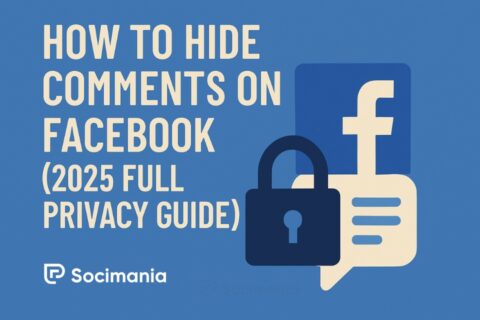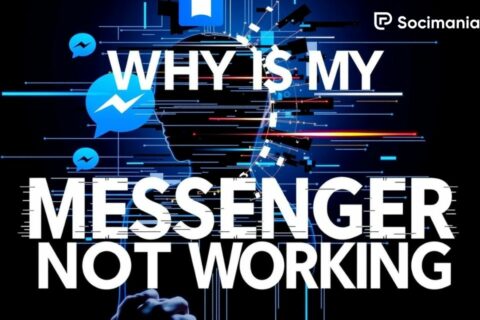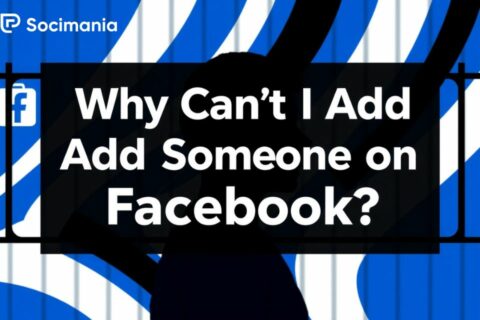As of 2025, Facebook still does not allow anonymous commenting on personal timelines, pages, or public posts. However, in Facebook Groups, a limited anonymous feature is available.
Here’s what you can do anonymously:
- Post anonymously in certain Facebook Groups (if the feature is enabled by the admin)
- Comment anonymously only on your own anonymous posts, within the same group context
- Choose a temporary nickname that hides your main profile during interaction
Important to know:
- You cannot comment anonymously on someone else’s post or in public discussions
- The anonymous feature is available only within groups that support it
- Facebook still knows your identity behind the scenes, even when other members don’t
So, while partial anonymity is possible in certain settings, Facebook is not fully anonymous like other platforms (e.g., Reddit).
How to Use the Anonymous Posting Feature in Facebook Groups
If you’re a member of a group that allows anonymous posts, here’s how you can comment or post anonymously:
- Open the group where you want to post
- Tap “Write something…”
- Select “Post anonymously” (You’ll see an option at the top or bottom of the post window)
- Facebook will assign you a temporary nickname for that group thread
- Submit your post, and it will appear without linking to your profile
Once your post is live:
- You can reply to comments anonymously under your post
- You can edit or delete your anonymous post as yourself
- Your real identity remains hidden from group members, but visible to admins and Facebook
Note: Not all groups support this. If you don’t see the “Post anonymously” option, the group admin has not enabled it.
Limitations of Facebook’s Anonymous Commenting System
Facebook’s anonymous posting feature has clear restrictions designed to maintain accountability while offering limited privacy:
- ❌ You cannot comment anonymously on other users’ posts—even within groups
- ✅ You can only comment anonymously on your own anonymous group posts
- ❌ No anonymous interaction on personal profiles, pages, or public posts
- ✅ Your nickname is only visible within that group thread, and changes with each new post
- ❗ Admins and moderators can always see your identity
- ❗ All anonymous activity is still logged by Facebook, and can be linked to your account if needed
These limitations help prevent misuse of anonymity, but also mean it’s not a full privacy tool. For true anonymity, Facebook encourages respectful use within the bounds of group guidelines.
Can You Reply Anonymously to Comments on Facebook?
No, you cannot reply anonymously to comments on Facebook, unless it’s under a post you created anonymously within a supported group.
Here’s how it works:
- ✅ If you made an anonymous post in a group, you can reply anonymously to comments under that post.
- ❌ You cannot reply anonymously to posts made by others—even in anonymous-friendly groups.
- ❌ You also can’t comment anonymously on public posts, pages, or timelines.
Each anonymous reply you make within your own anonymous post is tied to a temporary group-specific nickname, which changes per thread. While this offers a layer of privacy, Facebook still records your identity internally.
Tips to Maintain Privacy While Commenting on Facebook
If full anonymity isn’t possible, you can still protect your privacy and visibility with these smart tips:
- Adjust your comment audience using the visibility icon before posting
- Avoid using personal details in your comment content
- Use groups that allow anonymous posts when discussing sensitive topics
- Review your comment activity in your profile settings
- Turn off public search visibility in your privacy settings
- Log out or use a separate profile for browsing/commenting anonymously (within Facebook’s rules)
While Facebook isn’t built for full anonymity, you can stay low-key with smart usage habits and privacy settings.
Is It Safe to Use Third-Party Tools for Anonymous Facebook Activity?
Short answer: No. Most third-party “anonymous Facebook” tools are unsafe and unreliable.
Here’s why:
- ❗ They often violate Facebook’s Terms of Service, which could get your account banned
- ❗ Many tools collect sensitive user data or require suspicious permissions
- ❗ Some are scams designed to harvest credentials or plant malware
- ✅ Facebook does not officially support anonymous interaction via external platforms
Safe alternatives? Stick with:
- Facebook’s built-in anonymous post feature in groups
- Privacy settings that limit visibility of your profile and activity
If an app promises to let you comment or like comments anonymously, it’s probably too good to be true.
Why You Still Can Be Tracked Even After Posting Anonymously
Even when you post anonymously within a group, Facebook still knows it’s you. Here’s how tracking still works:
- Your post is linked to your account behind the scenes, visible to group admins and moderators
- Your device info, IP address, and session data are still logged
- Facebook retains activity logs for moderation and platform security
- Anonymous nicknames are not encrypted, just hidden from other group members
This means your real identity is never truly hidden from Facebook’s systems. Anonymous posting helps in front of users—but doesn’t prevent internal tracking or potential data retrieval if needed for security or legal purposes.
What Facebook’s Anonymous Identity Means for Real Privacy
Facebook’s “anonymous” identity system is designed to create perceived anonymity within group discussions, not actual privacy or data protection.
Facebook is a great platform for sharing content, but sometimes, not all comments on your posts are welcome.Whether it’s a negative comment or somethi...
When your messaging app suddenly stops functioning, it can interrupt conversations, delay plans, and create frustration. In most cases, this issue is ...
What it really means:
- You get a temporary nickname visible only in that group/thread
- Your real name and profile are hidden from other users
- Your identity is still stored by Facebook and accessible to moderators/admins
- It’s more about comfort and social privacy than complete anonymity
So, while you can participate in sensitive conversations more freely, it’s important to remember: this is pseudo-anonymity, not true invisibility.




No comments to show.